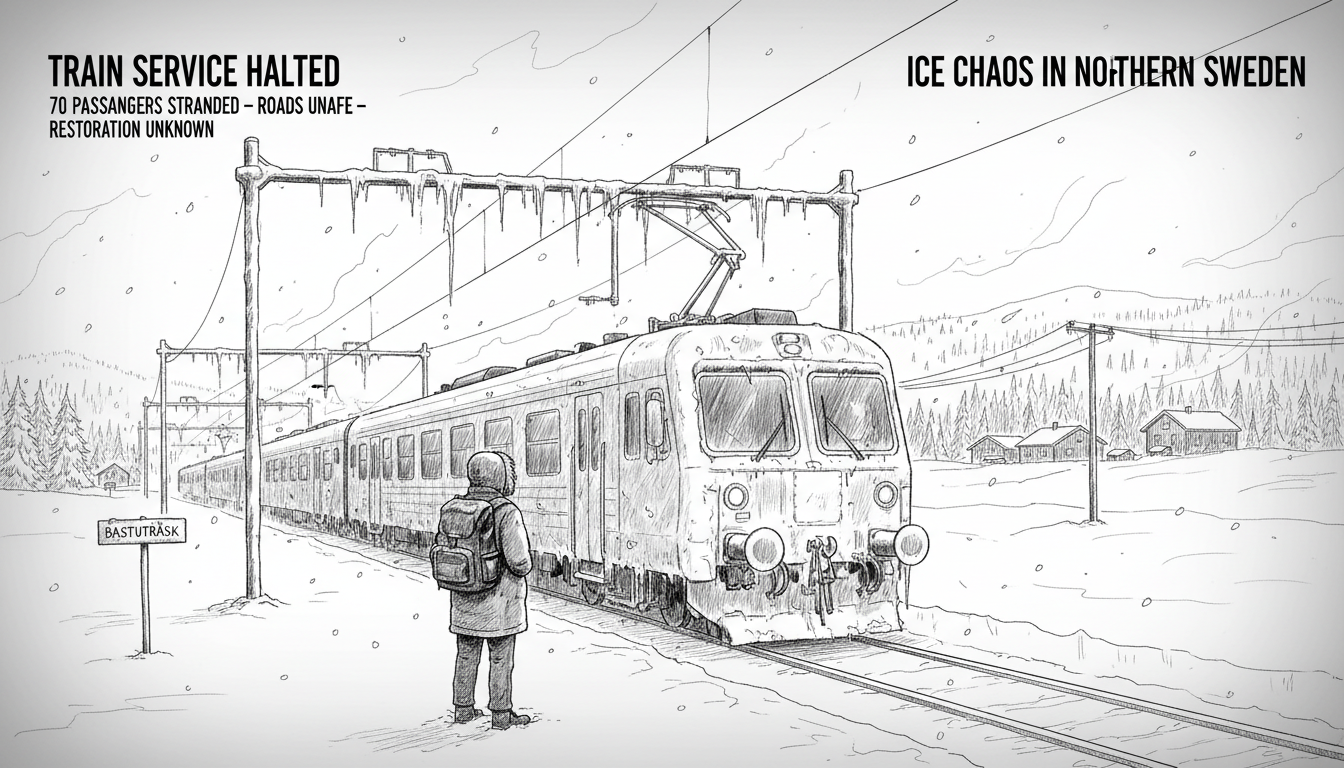Passengers faced major disruptions as ice buildup on power lines stopped train traffic in northern Sweden. Lotta Nystedt waited twelve hours in Bastuträsk after traveling from Skellefteå toward Gothenburg. Railway company SJ initially advised her to take a bus to Bastuträsk, promising hotel accommodation if stranded. But the small village lacks any hotels.
Nystedt described the situation. She asked customer service if they planned to build a hotel there. They said no. So she remained stuck at the station for half a day. Approximately seventy people found themselves stranded in Bastuträsk during Thursday evening according to rail operator Norrtåg.
Marie Torneus, marketing and communications manager for Norrtåg, expressed regret about the lengthy delay. She explained replacement buses couldn't operate because driving conditions were deemed unsafe. The company offered passengers transport to Umeå for hotel stays instead. Staff maintained close communication with travelers through all available channels.
They coordinated with café personnel at Bastuträsk station to distribute information while providing complimentary coffee and pastries. The initial service disruption between Jörn and Hällnäs near Bastuträsk was temporarily resolved. But the Swedish Transport Administration halted traffic again on Friday due to renewed ice formation.
Torneus noted workers need to physically remove ice from power lines, which takes considerable time. No estimated restoration exists for when train service might resume. This incident highlights infrastructure vulnerabilities during harsh Nordic winters. Sweden's extensive railway network frequently battles extreme weather, particularly in northern regions where temperatures plummet and ice accumulation becomes severe.
International visitors should note that Scandinavian transport systems, while generally efficient, face real challenges during winter months. Travelers should prepare for potential delays between November and March, especially when venturing north of Stockholm. The situation demonstrates how remote communities like Bastuträsk lack backup infrastructure when main transport links fail. Railway companies face difficult balancing acts between passenger safety and maintaining service during rapidly changing conditions.

